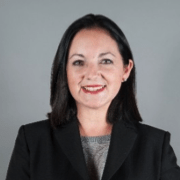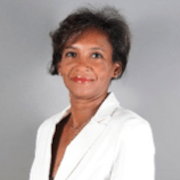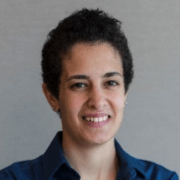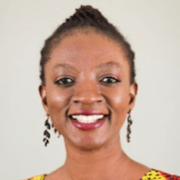Growth Support Services: Taking Women-Run SMEs to the Next Level
The Aspen Network of Development Entrepreneurs (ANDE)’s most recent state of the sector report on small and growing businesses identifies three key challenges: 1) a lack of talented managers in emerging markets, 2) a lag in very early-stage investing, and 3) an ongoing decline in international development support for entrepreneurship. On the positive side, however, it lauds the growth of women-owned enterprises and gender lens investing. This series demonstrates an example where some of these challenges and do-wells intersect: the VV GROW Fellowship, an intensive program for women-owned enterprises in emerging markets. What we learn from this program’s impact – on SMEs, the women who run them and their larger communities – informs activities across the wider SME sphere.
The VV GROW Fellowship, created in partnership with the ExxonMobil Foundation and now also supported by FedEx, invests in women business owners through three training stages: 1) virtual training, 2) in-person training, and 3) growth services and support. Throughout the last six months of the fellowship – which ran from June 2015 to May 2016 – Vital Voices staff worked with fellows to connect them to individualized growth services and support, based on the goals and action items in their action plan. In this final stage, each fellow implemented and revised her action plan and evaluated her progress toward her growth goals. Fellows have now completed this final stage of the year-long fellowship. How did Vital Voices’ growth support services benefit them? In their own words:
 Claudia Esparza is the founder and general manager of Nanas & Amas, an employment agency in Lima, Peru, that connects families with trusted domestic workers; gives working mothers space to develop careers; promotes domestic work as a dignified job; and advocates for domestic workers’ rights.
Claudia Esparza is the founder and general manager of Nanas & Amas, an employment agency in Lima, Peru, that connects families with trusted domestic workers; gives working mothers space to develop careers; promotes domestic work as a dignified job; and advocates for domestic workers’ rights.
What was your experience with the fellowship’s growth support services?
Esparza: This fellowship gave me tools, the opportunity to learn from amazing coaches, and introduced me to people from around the world. For example, on Vital Voices’ recommendation, USAID invited me to share my experiences at a workshop on economic empowerment for women. There were people from organizations like United Nations, World Bank – donors and people committed to increase women’s opportunities in the workplace. I was honored to share our experiences, first giving a speech and later participating in the main panel. People really connected with our work to promote and dignify domestic work as a tool to build better life opportunities for women worldwide and fight poverty. I shared the table with advocates and donors – an amazing networking opportunity.
Because of this, I have gained an important network in Peru – politicians, journalists, human rights advocates, lawyers – who are willing to work with us. There are important changes coming in Peruvian society because of this.
My VV GROW point of contact connected me with an amazing coach. I’ve been working with her to develop my leadership style and develop a strategic plan for Emprendedoras del Hogar, our NGO.
We also received a competitive grant, which we used to develop our intranet, which is one of our most important tools for franchising. It contains all our processes – information for customers, applicants, contracts – everything is there. The second use for the award was our new website. We applied everything I learned about marketing as a way to express who we are.
How have you carried forward momentum?
It’s amazing to realize that when you have a plan, things start to happen. Our first goal is almost complete. For the next six months, we will work hard with marketing strategies to improve our numbers and start franchising abroad. We are moving toward being in seven Latin American countries by 2020 and every Latin America country by 2025.
 Isabelle L. Mevs is the co-founder and CEO of Stars Industries S.A. (SISA), a food company that manufactures a wide variety of products – particularly hot sauce – using local Haitian ingredients.
Isabelle L. Mevs is the co-founder and CEO of Stars Industries S.A. (SISA), a food company that manufactures a wide variety of products – particularly hot sauce – using local Haitian ingredients.
What was your experience with the fellowship’s growth support services?
Mevs: After the in-person training, I’ve been surprised at how rich the follow-up was. We are still able to access webinars on interesting topics, such as looking for investors, financing and human resources. I am using an online tool called Impact Scorecard that helps you identify what assumptions you are making about your business and whether these assumptions are correct. Each month, I talk to someone, and we analyze the drivers and the risks that impact our business success.
The fellowship also put me in contact with an institution in my country which works with investors and assists them with local challenges.
I also had the opportunity to receive a competitive business grant. (With it) we covered an important part of the action plan, which was increasing our sales using a new marketing plan. We were able to increase them, but not as I expected. In my country the political environment and economic situation are very difficult these days – the elections did not pass that well and we have a devaluation of money. These were two exterior factors that I did not plan for. During growth services, I received support from two coaches and it helped a lot. I also had the opportunity to exchange ideas with a fellow facing similar political and economic issues. Now I have the knowledge to know how to deal with this situation.
What has surprised you about your development?
That I could (learn to) delegate. I also received networking training, learned how to do it, and now I participate in networking events. I am also able to step back and look at the big picture and identify new opportunities. I was told (by a trainer), “You’re supposed to be working on the business, not in the business.” Understanding that concept at first was difficult. Now I get it.
 Lina Khalifeh is the founder of and trainer at SheFighter, the first self-defense studio in Jordan designed to empower women both physically and psychologically though self-defense training.
Lina Khalifeh is the founder of and trainer at SheFighter, the first self-defense studio in Jordan designed to empower women both physically and psychologically though self-defense training.
How has your plan taken shape? How have you implemented your plan so far?
Khalifeh: (Before the fellowship) I knew I wanted to grow, but didn’t know how. And I was bad in accounting. The training has helped me in two main areas: 1) understanding and using my financials; 2) expanding my business vision, identifying what I wanted to do next and how to get there. My goal is still empowering and training women in self-defense globally. But now I have been able to make my plan more focused – on where to start a franchise.
What was your experience with the fellowship’s growth support services?
Unlike other programs I’ve done, this was not geared for startups, but established businesses like mine. I have especially benefitted from the training webinars focused on budgeting and financials. I’ve also benefitted a lot from the networks created by the VV GROW Fellowship, and the emphasis on action-planning and goal-setting.
Through the VV GROW Fellowship I received a small grant. I have used this to put on events and programs on self-defense and empowerment for women, including seminars for training the trainers. Training trainers is an important area for SheFighter. It helps other women grow through the process of becoming a trainer.
Recently we’ve been training Syrian women in the Al Azraq Refugee Camp. In the camps, 85 percent of the women are accepting of the idea of self-defense. In January and February this year, we trained 1,000 women. After Ramadan (which ended July 5), we want to train 800 Syrian teens in another camp and also train women in that camp to be trainers.
What has surprised you about your development?
I’ve been getting invited to speak globally. I’m excited that people support the idea of what SheFighter is doing, but it’s nonetheless been a surprise. (Note: SheFighter has, indeed, gained international attention. You can read spotlights here and here.)
Where do you want to be six months from now?
I want to be starting a new studio in another country. I want to be giving more international seminars. And I want to continue train-the-trainer activities: My goal has been to train 100 new trainers during the implementation period – we have 40 to go in the next six months.
 Saudat Salami runs Easyshop Easycook Services Limited, a company which provides customized online fresh food delivery targeted at working women in Lagos, Nigeria, who do not have the time to shop.
Saudat Salami runs Easyshop Easycook Services Limited, a company which provides customized online fresh food delivery targeted at working women in Lagos, Nigeria, who do not have the time to shop.
What was your experience with the fellowship’s growth support services?
Salami: Our WhatsApp group is the strongest thing I took away from VV GROW, because we share information on what we are doing, the challenges we are facing, whether we are meeting our goals. I’ve had challenges, and other fellows have had theirs. For example, the Nigerian economy has been unstable in the last year, and this has affected a lot of my expansion plan. (Through our cohort) we find we’re not alone. We can change things; we have to be adaptive. That’s what business is.
I received a grant, which I used for my market penetration strategy. Once I would have thought putting that money into marketing was a waste. But when we did a Facebook advert we found that we had a new customer placing an order on our site every day. And we were able to reach a lot people – we got 80,000 hits. People who live in areas where we don’t yet deliver were saying, “When are you coming here?” We also found out a lot of our customers or browsers were coming from their mobile phones, not from a desktop. So we used that information to build a new mobile application. For all this, we got an award for women-run e-commerce businesses. Without the grant, I would never have thought that would happen.
What has surprised you about your development?
My ability to adapt! Before, I felt that if I did something wrong, it is my fault, I can’t run a business. Now I know that these things happen when you’re running a business. So now when things happen I ask, “What do I need to change?” You don’t have to change your goals, just the ways you reach them.
I also found you need to find people to bounce things off because it’s not easy running a business in Lagos as a female. Once I found (others) on the entrepreneurial journey, I found that I am able to adapt, change and survive.
_____________
A well-run operation like the VV GROW Fellowship has a lot to offer its rising-star fellows like Claudia, Isabelle, Saudat and Lina. Each of the women was able to take a critical look at her business plan, identify areas for growth, and utilize new skills and networks to implement their goals.
How can other SME-focused organizations similarly support entrepreneurs’ continued development and their businesses growth? Drawing from the above testimonies, a few themes stand out:
- Networking. Throughout this series, VV GROW fellows attribute some of their gains to their peers, fellows on the entrepreneurial journey who make up a “community of practice” (Lave and Wenger, 1991). The ability to share experiences and give and receive empathetic perspective is a critical need of entrepreneurs in particular. Beyond personal support and perspective, peer-coaches can also benefit the bottom line; for example, 71 percent of last year’s VV GROW fellows report making connections that helped them grow their businesses (and this cohort is expected to report a strong percentage as well).
- Grant funding. The observant reader may have noticed that each of the fellows interviewed here applied for and received a competitive small grant to promote their business’s growth. (Note: Not all VV GROW fellows receive a grant; furthermore, small grants differ from the early-stage or gender investing lauded by the ANDE report, above.) While this cannot be replicated by every organization out there that supports SME managers, it does suggest that owner/managers have the savvy to apply grants shrewdly, where funds are most needed, especially following the hard work of financial and organizational analysis, action-planning and goal-setting that are a part of a comprehensive program like the VV GROW Fellowship. Having explored the importance of prioritization in depth, these fellows converted grant opportunities into high-impact activities.
- Online resources. In interview sessions (not all of which are reflected above), each fellow noted how continued access to previous training materials (such as online webinars), as well as the introduction of new topics, were useful as new challenges confronted them and required them to navigate new stages of strategic growth. There remains a need for high-quality, application-focused training materials that address SMEs in various stages of scaling up.
To those who work within entrepreneurship development, what other growth support services do you provide?
We will check back with the fellows around the new year for a final report on their journeys and the fellowship’s impact.
(Note: We’ve also been following Laureen Rwatirera – co-founder and vice president of Accelerate Performance Consultants, Johannesburg – in this series, but her busy schedule didn’t allow her to participate this round.)
_____________
Founding global partner:
ExxonMobil Foundation: The ExxonMobil Foundation is the primary philanthropic arm of Exxon Mobil Corporation in the United States, providing funding globally to improve basic education, promote women as catalysts for development and combat malaria in developing countries.
Platinum sponsor:
FedEx: FedEx is dedicated to transforming lives and economies around the world and in the communities where employees live and the company operates. The company is committed to investing $200 million in more than 200 communities by 2020 through collaborations with trusted NGOs and nonprofit organizations around the world.
About Vital Voices: Vital Voices Global Partnership invests in women leaders who improve the world, partnering with leaders from more than 140 countries who advance economic opportunity, increase political and public leadership, and end violence against women.
Nathan Rauh-Bieri is program coordinator of education at the William Davidson Institute at the University of Michigan.
Photos: Lina Khalifeh, founder of SheFighter, speaking at the One Young World Summit.
- Categories
- Education, Social Enterprise




